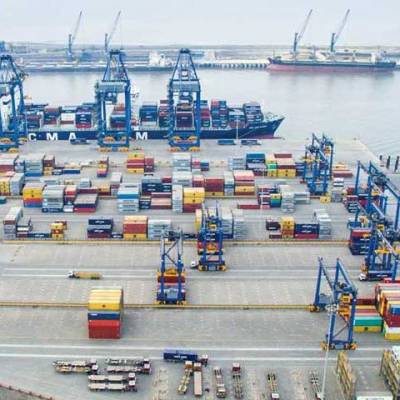Tags :
Schedule a Call Back
 JSW Infrastructure, India's second-largest commercial port operator, is planning to raise Rs 2,800 crore through an initial public offering (IPO). This marks the first time in 13 years that the JSW group is opting for an IPO to raise capital. The funds raised from the IPO will be utilized for the expansion of the Jaigarh port and the Mangalore terminal, as well as for debt repayment.
JSW Infrastructure, India's second-largest commercial port operator, is planning to raise Rs 2,800 crore through an initial public offering (IPO). This marks the first time in 13 years that the JSW group is opting for an IPO to raise capital. The funds raised from the IPO will be utilized for the expansion of the Jaigarh port and the Mangalore terminal, as well as for debt repayment.
The promoter holding in the company will decrease from 96.4% to 85.6% following the IPO. JSW Infrastructure has demonstrated rapid cargo volume growth among port companies, focusing on the less capital-intensive and faster cash-flow-generating terminal business. Its revenue stability is ensured as the JSW group serves as its anchor customer, and the company enjoys a long concession period of over 25 years, making it an attractive option for long-term investors.
JSW Infrastructure, headquartered in Mumbai, operates two non-major ports in Maharashtra, Jaigarh and Dharamtar, and seven terminals on both the western and eastern coasts of India. These ports are strategically located near JSW Steel and Energy plants, and the JSW group contributes two-thirds of the company's revenue. Over the past three years, the proportion of third-party sales has been steadily increasing.
The company's cargo handling capacity increased by 15% annually to 158 million tonnes per annum (MTPA) between FY21 and FY23, with cargo volume growing by 42% to 92.8 MTPA. Additionally, it operates two port terminals in the UAE under operations and maintenance agreements with a capacity of 41 MTPA. The company is also in the process of developing a 52 MTPA capacity port in Jatadhar, Odisha, to support JSW Steel's new facility in the region.
In terms of revenue composition, the company generates nearly 32% of its revenue from iron ore handling, 27% from thermal coal, 26% from coking coal, and the remainder from other cargo. Financially, JSW Infrastructure has reported impressive growth, with revenue increasing by 41% annually to Rs 3,194 crore between FY21 and FY23. Operating profit before depreciation and amortization (EBITDA) rose by 42% to Rs 1,798 crore during the same period, resulting in an EBITDA margin of 56%. Net profit also saw substantial annual growth of 62% to reach Rs 749 crore.
However, there are risks associated with the cargo handling business, particularly its dependence on bulk cargo, which can be impacted by fluctuations in commodity prices. Changes in concession and license agreements with the government could also affect the company's financial performance. Additionally, regulatory fees account for 17% of the company's total revenue, which adds to its operational risk.


Subscribe to our Newsletter & Stay updated